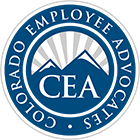Employers are increasingly using artificial intelligence technology in screening job applications and monitoring employees’ time spent on the job. While proponents may say the technology is inherently unbiased, the opposite might be true.
The Equal Employment Opportunity Commission recently issued guidance to employers on the use of AI when hiring or promoting employees.
AI is not perfect
Using AI to make hiring decisions or promote employees can be inadvertently problematic. For example, an AI resume screener’s outdated algorithm might overlook applicants with degrees from certain schools.
AI technology used to monitor employees’ rest breaks might issue a poor evaluation to an employee who needs extra breaks due to a disability or as part of a religious accommodation because its program does not account for such exceptions even though they are necessary and legal.
Employers relying on AI software can run afoul of Title VII, which prohibits employment discrimination based on race, religion, sex and other protected classes of employees.
AI technology does not always factor diversity into its data systems. The EEOC has had to investigate complaints filed by employees based on alleged AI discrimination. For these reasons, some well-known companies have discontinued their use of AI technology.
Job applications and AI
If you have recently been looking for employment, much of your job search has likely been conducted online. You fill out an application on an employer’s website, and your information is screened by computer software before your resume is touched by a worker from the company.
This might result in many denied applications before you even get your foot in the door of the company.
This practice is frustrating at best, and it may seem inherently unfair to some. How can AI software truly know whether your experience and education are a good fit for a particular job?
Human experience is complex and does not always fall neatly into an algorithm.
It can be questionable whether an initial denial by AI software is discriminatory. Still, many of these programs rely on data that does not factor in the diversity of the human population. Sometimes it takes an unbiased human eye to determine if a particular worker’s education and experience would make them a good match for an open position or promotion in the workplace.

